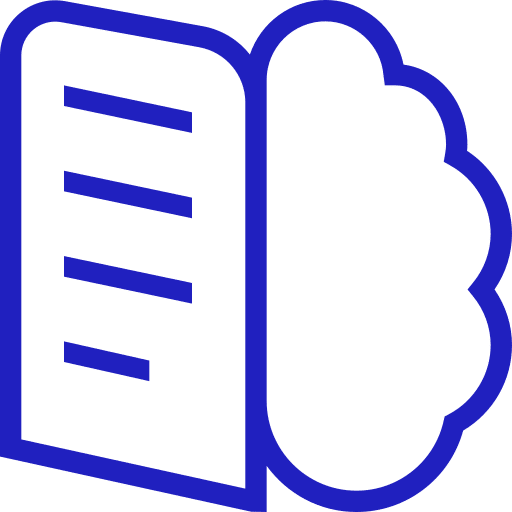Executive Briefings
A high-level, practical session giving senior leaders the insight needed for effective oversight
Clear Insight for Senior Leaders
Executive Briefings give boards, senior leaders, and elected members a clear and accessible understanding of consultation and engagement. Delivered by experienced Associates, they focus on the legal, political, and reputational issues that matter most—helping leaders make informed, confident decisions.
Each session highlights the duties that govern consultation, including the Gunning Principles, and explores the risks that can undermine projects if left unchecked. Drawing on real-world case studies from health, local government, and infrastructure, our experts show what works, what doesn’t, and how to avoid common pitfalls.
Briefings can be delivered as short boardroom sessions, extended workshops, or customised sessions tailored to your projects. Whatever the format, the aim is the same: to equip leaders with clarity, practical guidance, and reassurance that their organisation is prepared for scrutiny.
Building on the work of the Consultation Institute, tCI brings independence, credibility, and proven experience to every Executive Briefing.
Types of Executive Briefing
Below are examples of the types of briefing that can be provided.
Executive Briefing 'For Elected Councillors'
Our Executive Briefing gives Members the clarity and confidence they need to understand consultation, fulfil their role in decision-making, and build stronger relationships with the communities they serve.
This tailored session explores:
The role of consultation – why it matters, what the law requires, and how the Gunning Principles apply
Member responsibilities – understanding duties, risks, and how to provide effective oversight
Good practice in action – practical approaches that support fair, transparent, and defensible consultation
Managing risk – how to minimise reputational damage and avoid legal challenge
Through real-world examples and clear explanations, we connect the change process, consultation process, and scrutiny process so Members see the bigger picture and their part in it.
By the end, participants leave with a stronger grasp of the principles, risks, and best practices of consultation equipped to engage meaningfully with the public and guide decisions with confidence.
Executive Briefing 'Consultation'
Our Executive Briefing is designed for senior leaders and executives who need a clear, practical understanding of public engagement and consultation. Delivered in an engaging and accessible way, the session combines legal insight with best practice to build confidence, encourage discussion, and equip participants to oversee consultation effectively.
During the session, we cover:
What consultation really means and why it matters
The legal framework, including statutory duties and the Gunning Principles
The purpose and phases of consultation, from developing options to considering outputs
Common reasons for consulting, from addressing contentious proposals to building commitment for change
Who to consult and how to meet ethical and equality requirements
Best practice standards, including the Consultation Charter
By connecting the consultation process with wider change and scrutiny responsibilities, the briefing shows how leaders can manage risk, build trust with communities, and support defensible decision-making.
Participants leave with a stronger grasp of the principles, risks, and practical approaches that underpin meaningful and legally compliant consultation plus the opportunity to raise questions and explore issues relevant to their own organisation.
Executive Briefing 'Equalities'
Our Equalities Briefing is a focused, two-hour session designed for senior leadership teams. It provides an engaging and practical overview of why equality matters in organisational decision-making, highlighting both responsibilities and risks.
The session explores:
The importance of equality considerations and how they shape fair, defensible decisions
Risks of neglecting equalities, including legal, reputational, and social consequences
Resourcing equality work, and why investment in this area protects credibility and builds trust
The role of engagement and consultation in addressing equality issues and fostering inclusion
Allowing adequate time to consider equalities during service change, ensuring they are integral to the process
Leadership responsibilities, clarifying the role of Cabinet members and governance teams in championing equalities
Real-world lessons, with examples of successful and unsuccessful approaches from comparable organisations
By the end of the session, leaders will have a clear understanding of how to integrate equality considerations into decision-making, manage risks effectively, and demonstrate visible commitment to inclusivity. The aim is to build confidence, foster collaboration, and strengthen the organisation’s ability to deliver fair and equitable outcomes.
Executive Briefing 'Health Inequalities'
This two-hour briefing is designed to enhance understanding of the Duty to Reduce Health Inequalities and show how meaningful patient engagement can be embedded in decision-making. Tailored for senior leaders and decision-makers, it combines legal insight with practical strategies to help organisations address disparities and deliver more equitable outcomes.
The session covers:
Duty to Reduce Health Inequalities – what it means in practice, with a clear focus on Section 14Z35
Patient engagement – practical methods for involving patients and communities in meaningful ways
Population health management – and its link to tackling inequalities
Health Inequalities Impact Assessment (HIIA) – tools and approaches to assess and reduce disparities
Stakeholder involvement – engaging diverse perspectives to strengthen decision-making
Real-world lessons – examples of good and poor practice to reinforce key themes
By the end of the briefing, participants will be better equipped to fulfil their legal and ethical obligations, apply effective engagement techniques, and take proactive steps to reduce health inequalities. The goal is to build leadership confidence, strengthen governance, and support decision-making that is transparent, defensible, and inclusive.
Executive Briefing 'Public Engagement'
This Executive Briefing explores the significance of public engagement and consultation, helping leaders understand the differences between the two, their statutory duties, and the equality and legal frameworks that underpin them. The session is designed to build clarity, confidence, and practical knowledge, ensuring that engagement becomes a meaningful and defensible part of decision-making.
The briefing covers:
Key concepts – what engagement and consultation mean, and why they matter
The consultation process – when engagement is sufficient, and when consultation is required
Best practice and legal duties – including equality legislation, ‘due regard’, the Gunning Principles, the Consultation Charter, and case law perspectives from the Supreme Court
Effective engagement – the triple aim, asset-based approaches, and partnership working
Integrating engagement into decision-making – from preparing transparent options to considering outputs and reporting decisions clearly
Leadership responsibilities – recognising when consultation is needed to address contentious proposals, secure commitment, or facilitate change
Governance and scrutiny – connecting the change process, consultation process, and scrutiny process into a single coherent approach
By the end of the session, participants will have a stronger grasp of their legal obligations, the principles of good consultation, and the practical strategies for embedding engagement into decision-making. The aim is to help leaders make informed, defensible choices that build trust with communities and withstand scrutiny.
Want to know more?
Our Sales Team is on hand to assist with any questions you might have.





